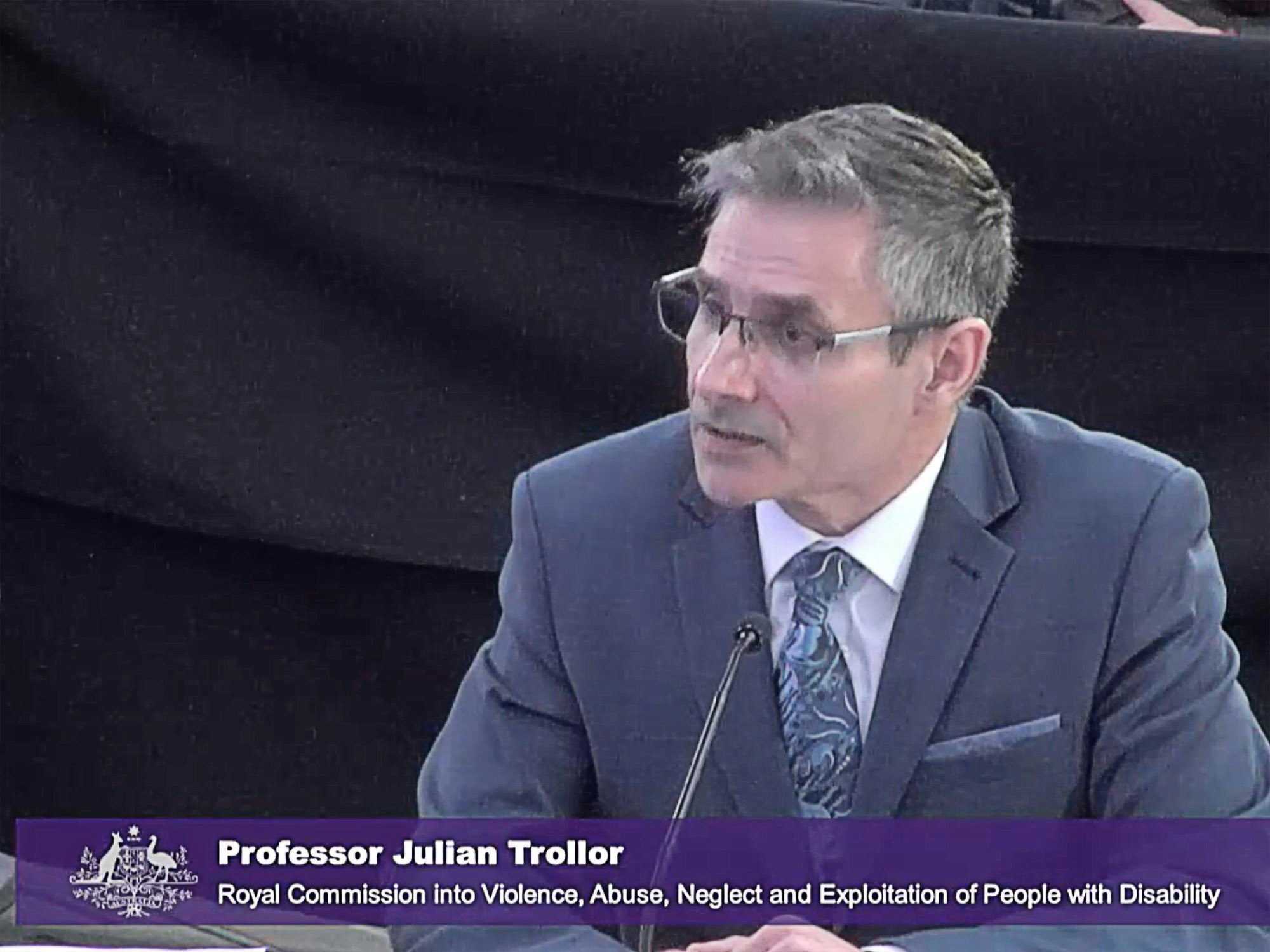ROYAL COMMISSION: Australia’s healthcare system not prepared

The Disability Royal Commission has been told Australia’s healthcare system lacks data and is not prepared for those with intellectual disability.
Day three of the Commission hearings, 20 February, heard from Professor Emeritus of Public Health and Community Medicine at the University of Sydney, Stephen Leeder.
Beyond improving communication in the health system, Professor Leeder says that Australia needs to think about the support being offered to carers.
Professor Leeder says, “Our own study of people with chronic illness indicated to us just how critical family and friends are to the maintenance of good health. And there’s nothing like the advocacy of an individual who understands the patient or client well to facilitate that kind of conversation.
“But for that to happen, of course, there needs to be a reciprocal recognition on the part of the professionals that the carer has a valuable contribution to make and they need to be an informed participant in the care conversation. And there are good signs that that’s increasingly occurring, but we’ve got a distance to travel.”
Professor Leeder also told the Commission that education should be offered first to those already working in health instead of waiting for “bright-eyed medical students” to come through and change things.
He added, “There’s a lag between undergraduate education and practice of some years. So why would you not, then, direct your initial educational effort, assuming you had limited resources, to the people who are already out there?”
Australia healthcare system not prepared
Professor Julian Troller from the school of Psychiatry at the University of New South Wales provided the Commission insight about identifying problems in the health system for those with a cognitive disability.
He told the Commission that Australia’s healthcare system is not prepared for the needs of those with developmental disabilities.
Professor Troller says, “Currently we have very limited connectivity between the health system and disability supports for people. And this lack of interconnectedness has been exacerbated by the NDIS (National Disability Insurance Scheme), which in many ways is a wonderful model, but the individual funding model, essentially, means that the state-based equipping and connections between those parts of the services are now missing.”
He also made statements indicating that people with intellectual disability are excluded from population health surveys due to “logistics”.
Because of the exclusion, Professor Troller told the Commission, “We currently have very limited capacity to understand the health outcomes for people with intellectual disability and autism, because our data systems are not connected and do not identify people with these conditions accurately.”
The lack of intellectual disability inclusion means that data is not able to represent issues and provide information accurately.
Professor Troller gave the example that people with autism experience higher rates of suicide ideation and there is not enough information about the number of attempts.
“[The] needs of people on the autism spectrum experiencing suicidal ideation are really not particularly well met. An example would be, say, our national suicide prevention strategy, which, although a very important piece of policy translated into action by Commonwealth and State Governments, the needs of this group are not mentioned,” says Professor Troller.
Medical decisions, not social decisions, need to be made
The Commission entered its fourth day last Friday and heard from Christine Regan and her daughter, Erin Sheehy, who lives with Down syndrome.
When Ms Regan’s daughter was born, she described it as a “baptism of fire” and that what she experienced in the hospital showed her how it was going to be for her and her daughter.
She says that often medical practitioners will not directly speak to her daughter about what they were doing.
“I didn’t have any hostile feelings from [the doctors], they just didn’t count her. She was like the object of their operation but not a person like I was just sitting next to the bed,” says Ms Regan.
Ms Sheehy had a stroke in 2002 and was hospitalised at the age of twenty five.
During the recovery process, Ms Regan says her daughter had not been offered the care she needed or that someone else would receive.
Ms Regan says it “felt like a punch to the gut” when a doctor told her “Oh, look, she has Down syndrome. How hard are you going to try?”
“There was no medical reason for her not to do rehabilitation. And this [doctor] was just going to send her home to a life of paralysis and no control and possibly an early departure from this world just because he had decided how important it was for her to be alive or something. I don’t know, but it wasn’t a medical decision,” says Ms Regan.
After that ordeal, Ms Regan took control of her daughters rehabilitation and advocated for her care.
She told the Commission that what needs to change is the way doctors make decisions about the care of someone with a disability.
“I rely on doctors for their medical opinion, for their understanding of medicine and understanding the body and all of that that I have no access to. That’s their knowledge and expertise,” explains Ms Regan.
“I do not rely on doctors for their social opinions of what Erin should do and how she should be, because unless they have had some kind of experience of Erin as a real person rather than the grief of an initial diagnosis of disability which is all they often see…”
To make these changes, Ms Regan suggested that medical professionals need to be made aware and trained in the way they make decisions.
She says, “Doctors need to be trained in the difference between medical decisions and advice and social decisions advice. I would like to see very much exposure to different types of people as part of mandatory learning for doctors.”
The current Commission hearings on health will continue until Friday, 28 February.